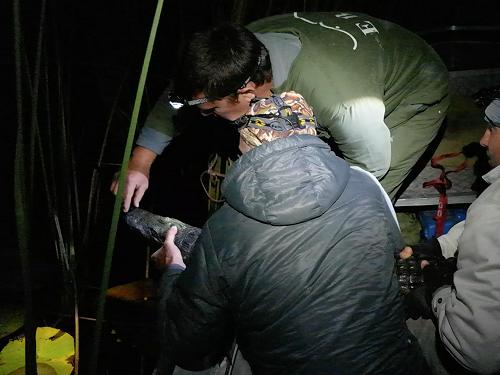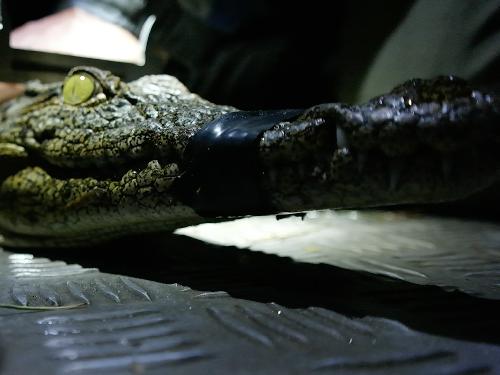Vincent Shacks
Other projects
12 Jan 2016
Measuring the Recovery of the Previously Exploited Crocodile Population in the Okavango Delta
The project aims to establish the baseline contamination levels of persistent organic pollutants in Nile crocodiles (Crocodylus niloticus) in the Okavango Delta, in order to be able monitor changes in these levels in the future.

Continued exposure of wildlife and humans to persistent organic pollutants (POPs) has severe implications for the health of those individuals including adverse affects on embryonic development and the proper functioning of the vertebrate reproductive system. The continued use of POP's in the Okavango catchment means that they are bound to increase in concentration particularly in the water, sediment, biota (crocodiles) and eventually throughout the whole foodchain.

Crocodilians are long lived, high trophic level predators which are territorial, and tend to be fairly localised in areas. They therefore make excellent long term, point source biological monitors to assess patterns of environmental contamination as they also have the ability to permanently store these chemicals in the fatty tissue. It has also been shown that continued exposure to these pollutants may also lead to endocrine disruption in crocodiles. The understanding of the baseline contaminant levels of these harmful chemicals is absolutely essential to any future monitoring programmes. Currently no work has ever been done on POPs concentrations in Botswana’s crocodile population. The Okavango Delta, the largest Ramsar site in the world, has it's catchment in Angola and the Okavango river first passes through Namibia before entering Botswana. The delta will thus be seriously affected by all proposed developments that will take place in these neighbouring countries. Angola has stated it's interest in large scale agricultural and mining development near the catchment areas, so it is essential that baseline levels of contaminants are established now.
The key outcomes of this work are to firstly assess the baseline contamination of crocodiles in the Okavango River. These results will be presented to the various stakeholders such as surrounding communities (community meetings), the Department of Wildlife and National Parks (scientific analysis reports) and the Ministry of Health (reports). As part of this initial assessment, the monitoring team will work together with The Permanent Okavango River Basin Water Commision (OKACOM) to begin identification of activities in the Okavango catchment that may be contributing to the contamination (farming, mining, tourism). OKACOM was established by the governments of Angola, Botswana and Namibia to act as the technical advisor on matters relating to conservation, development and utilisation of water resources of common interest in the Okavango river basin.
The results of the baseline assessments of crocodile samples and the various activities taking place in the catchment, will be used to suggest various recommendations to the bodies responsible for conservation and human health in the Okavango basin.